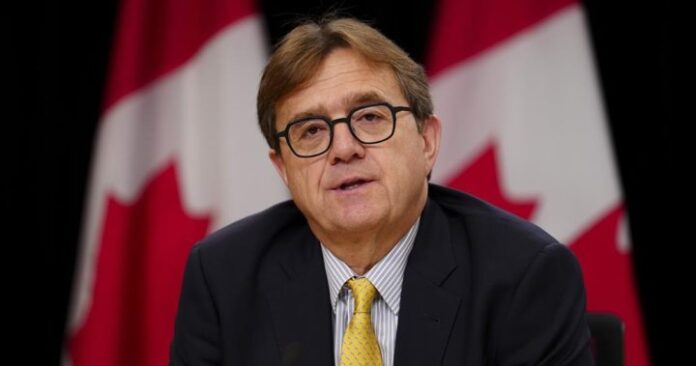“**Carbon Capture and Storage: Debunking Myths and Exploring Realities**
In the realm of environmental sustainability, the debate around carbon capture and storage technology continues to rage on. With recent developments in Alberta raising questions about the effectiveness and affordability of such systems, it’s crucial to delve deeper into the nuances of this controversial issue.
**Defending the Technology: Is Carbon Capture Worth the Investment?**
Jonathan Wilkinson, Canada’s energy minister, stands by carbon capture and sequestration technologies, arguing that they are not only effective but also becoming more cost-efficient over time. Despite criticisms claiming that the technology isn’t proven, Wilkinson asserts that the foundation of carbon capture has been around for a significant period, with advancements in scale and cost happening continuously.
Carbon capture, utilization, and storage (CCUS) systems hold promise as a crucial component of Canada’s climate plan, aiming to address emissions reductions and support the country’s oil and gas industry. However, recent setbacks and controversies have placed a spotlight on the challenges and complexities associated with implementing these technologies.
**Navigating the Complications: The Reality of Carbon Capture in Canada**
While Canada’s climate plan banks on carbon capture to achieve emissions reductions, the practical implementation of these technologies faces obstacles. From Alberta’s cancellations of major carbon capture projects to the discrepancy in subsidies and credits, the landscape of CCUS in Canada is far from straightforward.
Shell’s Quest CCS facility exemplifies both the potential and controversies surrounding carbon capture projects. While significant amounts of carbon have been captured and stored, questions arise regarding the reliance on subsidies and the ethicality of credit sales. Greenpeace’s findings further shed light on the challenges companies face in balancing economic viability with environmental objectives.
**Looking Towards the Future: Reconciling Economic Feasibility and Environmental Necessity**
As the debate over carbon capture technology intensifies, the cancellation of Capital Power’s project serves as a poignant reminder of the delicate balance between profitability and sustainability. Despite government promises of financial support, uncertainties persist regarding the economic viability of these ventures.
While skeptics may view these setbacks as a reflection of the limitations of carbon capture, proponents stress the importance of exploring diverse pathways to achieve environmental goals. The intersection of policy, economics, and technology underscores the complexity of transitioning to a low-carbon future.
In conclusion, the narrative surrounding carbon capture and storage technology is far from black and white. As we navigate towards a sustainable future, it is imperative to critically evaluate the realities and challenges of these initiatives. Despite the hurdles and controversies, the potential of CCUS to combat climate change remains a beacon of hope, urging stakeholders to collaborate towards a shared vision of environmental stewardship.”
Reference












